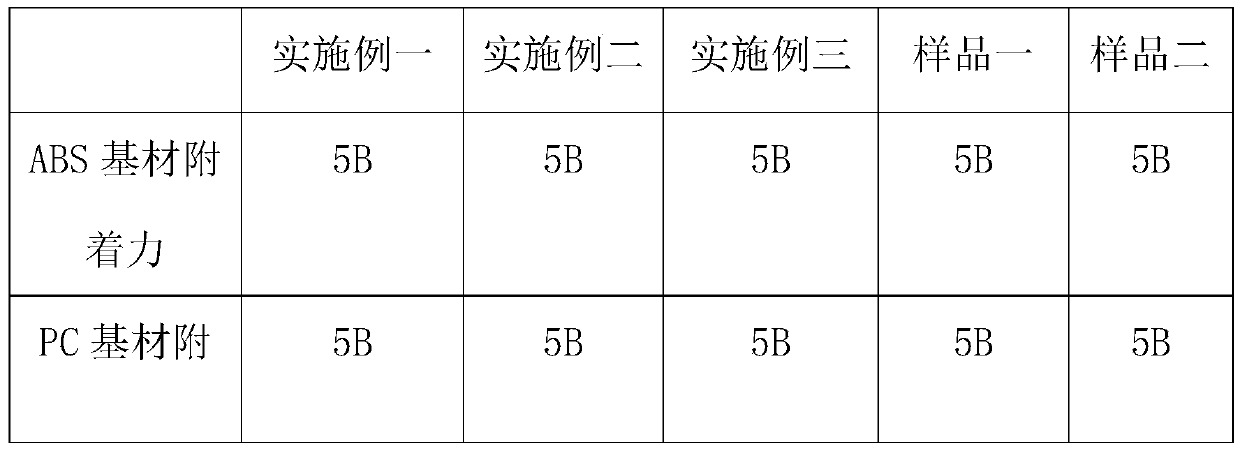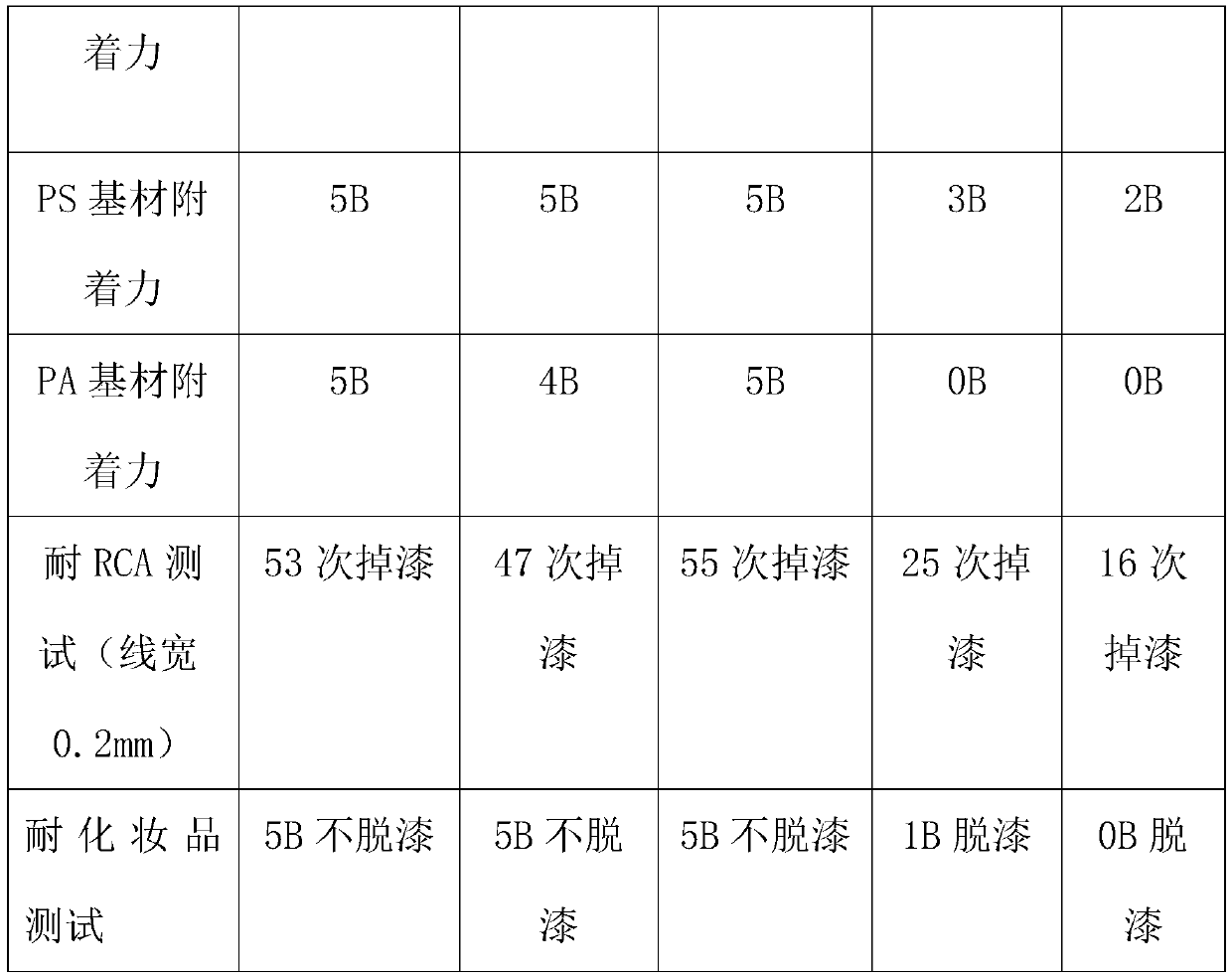LED curable pad printing ink for plastic material
A material and pad printing technology, applied in inks, applications, household appliances, etc., can solve the problems of shallow pad printing coating, single LED light band, easy to be strongly corroded, etc., and achieve good wettability and flexibility. , The effect of high ink transfer and thin pad printing
- Summary
- Abstract
- Description
- Claims
- Application Information
AI Technical Summary
Problems solved by technology
Method used
Image
Examples
Embodiment 1
[0049] A LED curing pad printing ink for plastic materials, the components include photoinitiator, co-initiator, solvent, hyperbranched polyester acrylate, polyester acrylate, novolac epoxy acrylate, defoamer, dispersant , pigments, fillers and thickeners.
[0050] The photoinitiator is 2,4,6-trimethylbenzoyl-diphenylphosphine oxide, bis(2,4,6-trimethylbenzoyl)phenylphosphine oxide and 2-isopropylthia Anthrone is mixed and matched, and the co-initiator is one of N,N-dimethylbenzoic acid ethyl ester, N,N-dimethylbenzoic acid-2-ethylhexyl ester and dimethylaminoethyl benzoate.
[0051] Solvents include ester or ketone solvents such as butyl acetate, propylene glycol methyl ether acetate, and cyclohexanone.
[0052] The defoamer is specifically BYK-054;
[0053] The pigment is carbon black, and the carbon black is specifically Mitsubishi MA11;
[0054] The dispersant is specifically BYK-168;
[0055]The filler is specifically barium sulfate, talcum powder and poly(tetrafluoro...
Embodiment 2
[0085] A LED curing pad printing ink for plastic materials, the components include photoinitiator, co-initiator, solvent, hyperbranched polyester acrylate, polyester acrylate, novolac epoxy acrylate, defoamer, dispersant , pigments, fillers and thickeners.
[0086] The photoinitiator is 2,4,6-trimethylbenzoyl-diphenylphosphine oxide, bis(2,4,6-trimethylbenzoyl)phenylphosphine oxide and 2-isopropylthia Anthrone is matched with a variety of initiators, and the co-initiator is N, N-dimethylbenzoic acid ethyl ester, N, N-dimethylbenzoic acid-2-ethylhexyl ester, dimethylaminoethyl benzoate A sort of.
[0087] Solvents include ester or ketone solvents such as butyl acetate, propylene glycol methyl ether acetate, and cyclohexanone.
[0088] The defoamer is specifically BYK-1790;
[0089] The pigment is carbon black, and the carbon black specifically adopts Columbia Raven410;
[0090] The dispersant is specifically BYK-163;
Embodiment 3
[0121] A LED curing pad printing ink for plastic materials, the components include photoinitiator, co-initiator, solvent, hyperbranched polyester acrylate, polyester acrylate, novolac epoxy acrylate, defoamer, dispersant , pigments, fillers and thickeners.
[0122] The photoinitiator is 2,4,6-trimethylbenzoyl-diphenylphosphine oxide, bis(2,4,6-trimethylbenzoyl)phenylphosphine oxide and 2-isopropylthia Anthrone, N,N-dimethylbenzoic acid-2-ethylhexyl initiator combination, co-initiator is N,N-dimethylbenzoic acid ethyl ester, N,N-dimethylbenzoic acid-2 - One of ethylhexyl ester, dimethylaminoethyl benzoate.
[0123]Solvents include butyl acetate, propylene glycol methyl ether acetate, cyclohexanone and other ester or ketone solvents.
[0124] The defoamer is specifically BYK-A500;
[0125] The pigment is specifically titanium dioxide;
[0126] The dispersant is specifically BYK-2008;
[0127] The filler is specifically talcum powder, poly(tetrafluoro)ethylene wax;
[0128]...
PUM
| Property | Measurement | Unit |
|---|---|---|
| Adhesion | aaaaa | aaaaa |
Abstract
Description
Claims
Application Information
 Login to View More
Login to View More - R&D
- Intellectual Property
- Life Sciences
- Materials
- Tech Scout
- Unparalleled Data Quality
- Higher Quality Content
- 60% Fewer Hallucinations
Browse by: Latest US Patents, China's latest patents, Technical Efficacy Thesaurus, Application Domain, Technology Topic, Popular Technical Reports.
© 2025 PatSnap. All rights reserved.Legal|Privacy policy|Modern Slavery Act Transparency Statement|Sitemap|About US| Contact US: help@patsnap.com


